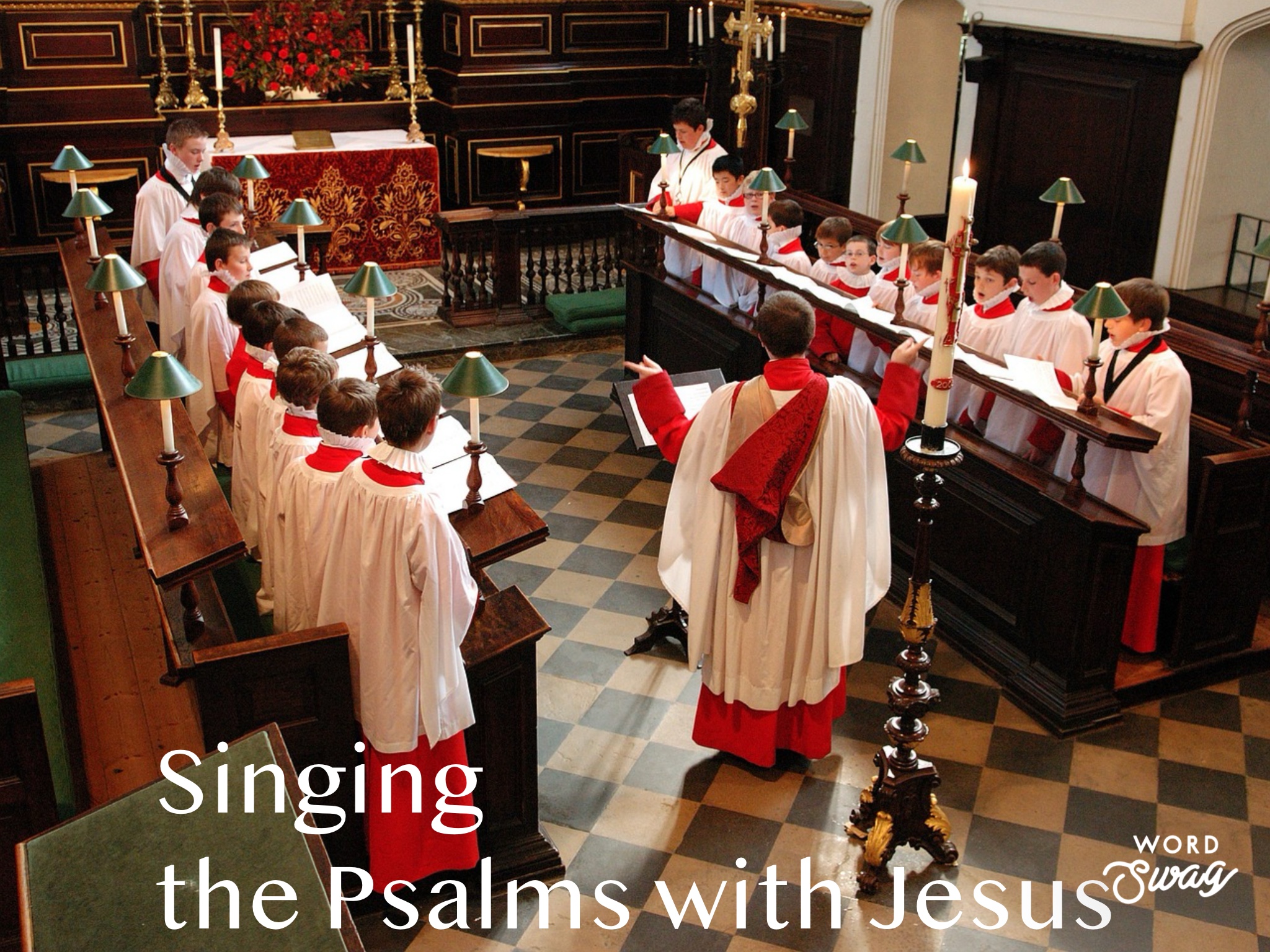“Let the word of Christ dwell in you richly, in all wisdom teaching and admonishing one another with Psalms, hymns, and spiritual songs singing with grace in your hearts to God.”
~Colossians 3:16
Everybody loves Psalm 23. Many Christians do not know, and still fewer love and will sing Psalms 109 and 137. When it comes to a few Psalms, Christians become Marcionites. (He was a second-century theologian who pitted the vengeful God of the Old Testament with the loving God of the New Testament revealed in Jesus. Consequently, he cut the Old Testament out of the biblical canon and highly edited the New Testament.) Christians will rightly appeal to Psalm 139 to declare that the unborn are persons and shouldn’t be aborted, but they might ignore the last part of that Psalm that declares that we hate our enemies with a perfect hatred. This hatred reflects God’s own hatred, as declared in Psalms 5 and 11.
“This is not what Jesus taught,” you may hear. But in Colossians (along with a parallel in Ephesians 5:19), Paul says that the Psalms are “the word of Christ” that is to “dwell in [the church] richly.” We are to teach and admonish one another with these Psalms. Paul is not contradicting Jesus. Singing the Psalms is a clear command of Scripture, so it is incumbent upon us to obey the command and seek to better understand as we obey.
Jesus sings the Psalms. Quoting Psalm 22, the author of Hebrews puts these words on the lips of Jesus, “I will declare your name to my brethren; in the midst of the assembly I will sing praise to you” (Heb 2:12). Paul says that the Psalms are “the word of Christ” that we sing to teach and admonish one another. We join Jesus in singing when we sing the Psalms. He may or may not like the other hymns and songs we compose, but we know, without a doubt, that he likes the Psalms. They are given by inspiration of God and are profitable for doctrine, for reproof, for correction, and for instruction in righteousness (2Tm 3:16).
Each member of the congregation becomes a teacher in worship. This doesn’t negate the ordered offices Christ appoints for the church (cf. Eph 4:11-13), but it speaks of our individual responsibilities as worshipers. We are not spectators in corporate worship. We do not come to worship to watch the praise team perform so that we can be “ministered to” or entertained. Worship requires the participation of every member, even the children and infants in whose mouths God has ordained for praise (Ps 8). You worship in order to instruct (teach) and warn (admonish) the other members of the congregation and be instructed and warned by them. We do this by singing God’s Word.
Paul’s command can throw a small wrench in the works concerning what we believe about the direction of our prayers and praise. I would venture to say that most Christians think that our singing is directed solely to God. But that isn’t the case, as Paul makes clear. If we pay close attention to the Psalms themselves, we will see that even the Psalms tell us differently. There are calls, encouragements, and admonitions to fellow worshipers in the Psalms to come and worship, to live righteously, and to avoid sin. God himself is not the only one in the audience, so to speak. Worship is a family gathering with the Father, Son, Spirit, the angels, and all the human family (see Heb 12). Our corporate worship is a family conversation. God speaks to us through his Word, we speak back to God, and we talk to one another. Paul emphasizes this corporate worship dynamic in Colossians 3:16.
Teachers need to know their subject. Consequently, as worshipers, we must sing with understanding (Ps 47:7). We can’t be lazy. We must listen to what we sing, pay attention to the lyrics, and teach enthusiastically. Teachers need to equip themselves with knowledge and the ability to communicate, which means that you must learn to sing as best as possible.
Because we not only teach but are being taught by others, we must also listen to our fellow worshipers, submit to the word of Christ, be ready to obey whatever he commands, and meditate on those things we don’t yet understand.
Passive worship is not an option for the Christian. We are called to full-bodied, whole-hearted participation in the worship service. Each of us is to take up our teaching ministry with vigorous, skillful singing (see Ps 33:1-3), joining Jesus in singing his Psalms to one another.















